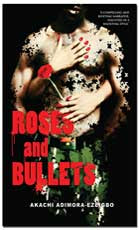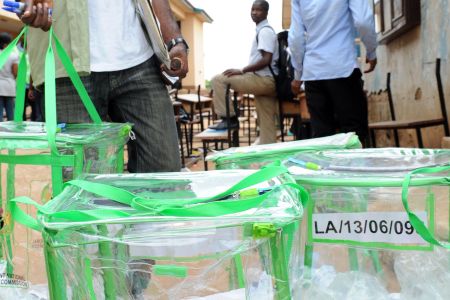
That Sanusi Lamido Sanusi, the governor of the Central Bank of Nigeria (CBN), is a stubborn man is something Nigerians have come to realise. His penchant for sticking to his ideals even in the face of widespread opposition has assumed legendary renown.
Sanusi, a blue-blooded scion of Kano Royalty, does not back down from his convictions and has over the years shown that he possesses very sound judgement, as his convictions continues to stand the test of time. In February, Sanusi refused to heed the International Monetary Fund’s advice to devalue the Naira, stating that the recommendation was “internally inconsistent”. Before then, he had faced-off the Nigerian senate, refusing their demand that he withdraw a statement by him that 25% of government recurrent expenditure is spent on them.
That the future later proved Sanusi right on both occasions says a lot about the man’s capabilities as an administrator. The Naira, it turns out, didn’t need any tinkering -- at least not the kind the IMF envisaged -- and the Senate later admitted, albeit reluctantly, that his statements “were close to the truth”. In Sanusi Lamido Sanusi, it appears, Nigeria has found the right sort of person to administer the Central Bank, someone who would not sell-out, or swallow IMF directives without investigating their merits.
However, Sanusi is currently facing the strongest opposition yet, in his attempt to improve the Nigerian banking sector. This time, the opposition bears the dreaded religious colours, as the Christian Association of Nigeria (CAN) is asking that plans to introduce Islamic -- non-interest -- banks be shelved. According to CAN, led by the garrulous Ayo Oritsejiafor, the introduction of Islamic banking in Nigeria is tantamount to turning the secular country into an Islamic state, and is at par with the listing of Nigeria as a member of the Organisation of Islamic Countries (OIC) during the heady days of military rule.
“The problem is this;” says Oritsejiafor, “what the original CBN Act, or whatever it was, it says was non-interest banking. The original thing was just non-interest banking. Islamic banking is just one kind among many other kinds of non-interest banking. So, why would CBN, an organization, an institution that represents the Federal Government, which is an institution that represents all Nigeria zero in on only one kind of non-interest banking. This is the problem with Sanusi and his idea.”
Oritsejiafor’s statements were echoed by another Christian leader of high standing, the Archbishop of Lagos, olubunmi Okogie, who said, "We are against the operation of Islamic banking in Nigeria because we see it as another deliberate move to subjugate Christians in Nigeria. Nigeria is a secular state. We must be very sensitive to the religious beliefs of others.”
As expected, Sanusi is not budging and the CBN, amidst the furore, granted its first preliminary licence to Stanbic IBTC Bank Plc to provide Islamic banking services to the Nigerian populace. Stanbic IBTC is expected to commence Islamic banking within six months, according to the CBN, failure of which the licence becomes void, requiring that the bank reapply to the CBN for similar licence.
Sanusi has so far played down the dissenting voices by stressing that the principles of Islamic and other forms of none-interest banking is geared towards the uplift of the masses, who usually find the interest rates of conventional banking exorbitant.
As it appears, Islamic banking does not preclude a Christian from benefiting from its non-interest products. Sanusi is again right, Islamic Banking, which is already being practiced in other secular countries, is here to stay and if all goes according to plan, Nigeria will be the better for it. This is yet another chalk mark on the winning board of the “stubborn” prince.






